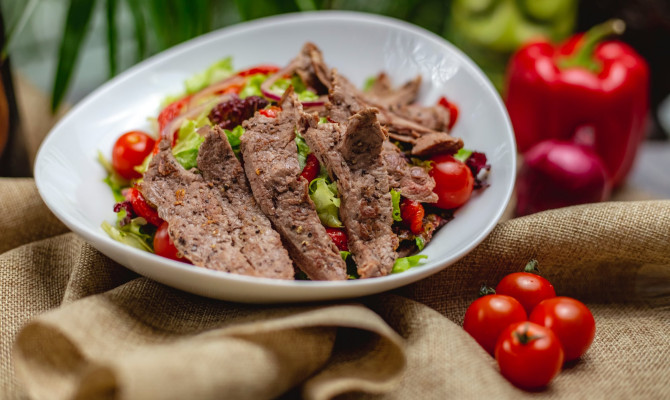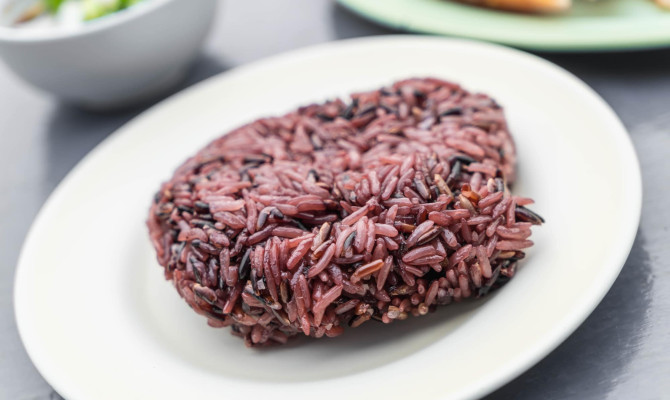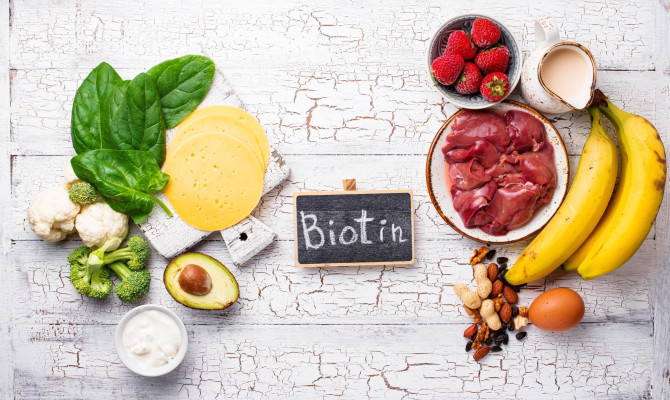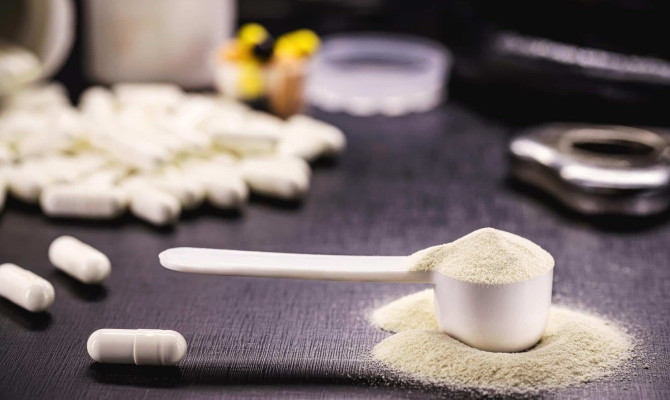Folic acid and its Health benefits

- Folic Acid
- 16 Aug 2023
Overview
What is folic acid?
Folic acid is a synthetic (artificial) folate vitamin. Folate is the water-soluble B9 vitamin found naturally in some animal and plant foods. Folate helps the body make new red blood cells, helps utilize fat and protein, and helps the nervous system proper functioning.1Overview | Researched based study from Nih.gov

Facts
Facts about folic acid
- To create new skin, hair, and nail cells, folic acid is used by our bodies.
- One can get folic acid through dietary supplements and fortified (enriched with nutrients) foods.
- In fortified meals and supplements, folate is found in the synthetic form of folic acid, which has a higher bioavailability than naturally occurring folate.
- Folic acid and vitamin B12 support the body’s efficient utilization of iron.
- It is rare to have a folate shortage on its own; instead, it typically coexists with other dietary deficiencies.
- Folic acid is sometimes used with other drugs to treat pernicious anemia (the body’s red blood cells decrease due to the inability of the intestine to absorb vitamin B12) 1Facts| Researched based study from Nih.gov .
Sources
Sources of folic acid
Folic acid is only available in tablet form or as a supplement, but we can get folate naturally from the following food sources.
Plant sources
- Dark leafy vegetables
- Asparagus
- Broccoli
- Kale
- Spinach
- Beets
- Turnips
- Whole grains
- Beans
- Brussels sprouts
- Avocado
- Orange
- Papaya
- Banana
Animal sources
- Salmon
- Beef liver
- Milk
- Egg
- Brewer’s yeast 2Sources| Researched based study from Nlm.nih.gov
Functions
Functions of folic acid
The body uses folate
- To produce and maintain deoxyribonucleic acid
- To help mature the red blood cells
- To help create new proteins
- To help the body cells work 1Role | Researched based study from Nih.gov
Benefits

Health benefits of folic acid
Treat folate deficiency
- Consuming folic acid raises the folate level in our body. it prevents the complication of folate deficiency, such as anemia, pregnancy issues, etc 3Benefits | Researched based study from Cdc.gov
Helpful in pregnancy
- It helps in the development of the fetal brain and spine (neural tube) and prevents neural tube defects
- It decreases pregnancy-related complications such as preeclampsia ( high blood pressure) 4Benefits | Researched based study from Nlm.nih.gov
Maintain brain health
- It helps in brain functioning .
- It improves the thinking ability .
- It reduces the risk of dementia (memory loss)5Benefits | Researched based study from Nlm.nih.gov
Reduces blood pressure
- Folic acid intake relaxes the blood vessels and improves blood flow 12Benefits | Researched based study from Nature.com
Treats vitiligo (skin disorder)
- Vitiligo is when the skin loses its color and develops milky-white patches.
- Folic acid intake improves the symptoms of vitiligo 13Benefits| Researched based study from Nlm.nih.gov
Treats depression
- Folate helps in the production of neurotransmitters (chemical messengers that carry the signal from one neuron to another)
- It decreases the symptoms of depression in new moms(postpartum depression) 6Benefits| Researched based study from Nlm.nih.gov
Prevent the risk of heart disease
- High homocysteine (amino acid)increases the risk of heart diseases
- Folate helps in the breakdown of homocysteine and thus help lowers its level in the blood 7Benefits | Researched based study from Ahajournals.org
Prevent fertility problem
Taking Folic acid
- It enhances the egg(ovum) quality .
- It increases the chance of egg implantation in the uterus and increases the likelihood of conceiving 8Benefits | Researched based study from Nlm.nih.gov
Kidney disease
Folic acid intake
- It helps decrease the homocysteine level in the blood of impaired kidney patients also decreases the risk of heart problem 9Benefits| Researched based study from Nlm.nih.gov
Inflammation
- Folic acid intake reduces the C-reactive protein level in the blood
- C-reactive protein level increases during inflammation in the body 10Benefits | Researched based study from Nlm.nih.gov
Diabetes (high blood sugar)
Folic acid intake
- It helps maintain the blood sugar in our body
- It decreases the insulin resistance, insulin resistance is when body cells don’t respond to insulin and cannot convert sugar into energy. 11Benefits | Researched based study from Mpdi.com
Dosage
Dosage of folic acid
The recommended dietary allowance for folate for different age groups is as follows
- Age 0 to six months-65 microgram DFE (Dietary folate equivalent)
- Age 7 to 1year-80 microgram DFE
- Age 1 to 3 years-150 micrograms DFE
- Age 4-8 years-200 micrograms DFE
- Age 9-13 years-300 micrograms DFE
- Age 14 years and above 400 micrograms DFE
- Pregnant woman-600 micrograms DFE 1Dosage | Researched based study from Nih.gov
Toxicity
Risk of folic acid overdose toxicity
Taking high doses of folic acid supplements can lead to the building up of unprocessed folic acid in the body, which can lead to the following conditions-
Autism
It is a neurological disorder affecting the brain development .
Impaired immune function
High intake of folic acid
- It suppresses the immune system of the body .
- It reduces the activity of natural killer cells(inborn immune cells that fight against the body’s stress)
Cancer
High folic acid intake
- It might cause abnormal cell growth to progress further increases the risk of prostate cancer 14Toxicity | Researched based study from Nlm.nih.gov
Deficiency
Folic acid deficiency
What are the causes of folic acid deficiency?
- Not eating a balanced diet
- Overcooking of the vegetables and fruits because folic acid is destroyed by heat during cooking.
- Diseases of the digestive system that prevent the folic acid absorption
- Hemolytic anemia
- Kidney patients on dialysis
- Excessive alcohol consumption
Folic acid deficiency symptoms
- Headache
- Irritability
- Extreme tiredness
- Weakness
- Difficulty in concentration
- Difficulty in breathing
- Rapid heartbeat
- Color change of hair, skin, and fingernails
- Abscess (boil) in mouth and tongue
- Diarrhea
- Gray hair
People are at high risk of folic acid deficiency
- Woman of childbearing age
- Pregnant woman
- Aged people
- People living on a folate-deficient diet
- Irritable bowel syndrome ( a condition that affects the intestine)
- Celiac disease( a condition that damages the immune system)
- Methylenetetrahydrofolate reductase(MTHFR) gene polymorphism MTHFR gene mutation affects the folate’s ability to convert to its active form leading to an increased level of homocysteine amino acid in the blood.
- At high levels, homocysteine damages the arterial lining 16Vulnerability | Researched based study from Sciencedirect.com
Side effects
Side effects of folic acid
- Nausea and vomiting
- Stomach gas (bloating)
- Stomach pain
- Appetite loss
- Difficulty in sleeping
- Difficulty in concentration
- Feeling of hopelessness
- Anxiety
- Unpleasant taste on the tongue 15Side effects | Researched based study from Sciencedirect.com
People who should refrain from taking folic acid
Persons with the following condition should avoid using folic acid-
- Kidney disease
- Liver disease
- Type 2 diabetes(high blood sugar level)
- Seizure disorder (epilepsy)
- Alcoholism (person addicted to alcohol)
- Rheumatoid arthritis( a condition that affects the joints)
- Lupus( is a condition in which the immune cells damage the healthy cells of the body)
- Hemolytic anemia (a disease in which red blood cells are damaged faster)
- Any chronic infection
Interactions
Interactions of folic acid
Folic acid may interact with the following medications
Phenytoin
- Phenytoin is an antiseizure medicine
- Taking folic acid and phenytoin together might decrease the effectiveness of the drug.17Interactions | Researched based study from Nlm.nih.gov
Fosphenytoin
- Fosphenytoin is used to treat seizures(sudden changes in movement due to uncontrolled electrical activity between brain cells)
- Taking folic acid along with fosphenytoin decreases the effect of the drug.
Primidone
- Primadone is an anticonvulsant medicine
- Taking folic acid with primidone might decrease the efficiency of the drug
Capecitabine
- Capecitabine is a medicine to treat cancer
- Taking folic acid and capecitabine together increases the side effects of the drug capecitabine
Pyremithamine
- Pyremithamine is used for treating parasitic infections
- Folic acid and pyremithamine, when taken together, reduce the effectiveness of the drug
Phenobarbital
- Phenobarbital is an anticonvulsant drug
- Folic acid and Phenobarbital, when taken together, reduces the effectiveness of the drug
5-Fluorouracil
- 5-Fluorouracil is used for cancer treatment
- Taking folic acid and 5-Fluorouracil together increases the side effects of the drug.
Some other drugs that interact with folic acid are as follows
- Tetracycline
- Pyrimethamine
- Nitrofurantoin
- Barbiturate
- Methotrexate
- Primidone 17Interactions | Researched based study from Nlm.nih.gov
Takeaway
Key Takeaways
- Folic acid is the synthetic(artificial) Vitamin B9
- Most people can get folate from naturally occurring fruits and vegetables
- People deficient in folate can get it through folic acid supplements or tablets
- One must always take advice from a registered health practitioner before consuming folic acid supplements
Any feedback on this article?
 This Articles content was accurate
This Articles content was accurate Very Informative Article
Very Informative Article I have a question or a comment
I have a question or a comment
 This article contains inaccurate content
This article contains inaccurate content This article was not helpful
This article was not helpful I have a question or a comment
I have a question or a comment
We appreciate your helpful feedback!
Checkout our social pages
References
-
National Institutes of Health
Folate-Fact Sheet for Health Professionals | Overview | biological role | Dosage
-
National Library of Medicine
Folic Acid Deficiency | Symptoms
-
Centers for Disease Control and Prevention
Folic Acid: The Best Tool to Prevent Neural Tube Defects | Benefits
-
National Library of Medicine
Supplementation of folic acid in pregnancy and the risk of preeclampsia and gestational hypertension: a meta-analysis | Benefits
-
National Library of Medicine
Effects of folic acid supplementation on cognitive function and Aβ-related biomarkers in mild cognitive impairment: a randomized controlled trial | Benefits
-
National Library of Medicine
The association of folate and depression: A meta-analysis | Benefits
-
Journal of the American Heart Association
Folic Acid Supplementation and the Risk of Cardiovascular Diseases: A Meta‐Analysis of Randomized Controlled Trials | Benefits
-
National Library of Medicine
Diet and Fertility: A Review | Benefits
-
National Library of Medicine
Folic Acid and Homocysteine in Chronic Kidney Disease and Cardiovascular Disease Progression: Which Comes First? | Benefits
-
National Library of Medicine
Effects of Folic Acid Supplementation on Inflammatory Markers: A Grade-Assessed Systematic Review and Dose–Response Meta-Analysis of Randomized Controlled Trials | Benefits
-
MPDI
Folic Acid Supplementation Improves Glycemic Control for Diabetes Prevention and Management: A Systematic Review and Dose-Response Meta-Analysis of Randomized Controlled Trials | Benefits
-
Springer Nature Limited
Serum folate levels and hypertension | Benefits
-
National Library of Medicine
Improvement of vitiligo after oral treatment with vitamin B12 and folic acid and the importance of sun exposure | Benefits
-
National Library of Medicine
Folate and Its Impact on Cancer Risk | Toxicity
-
Science Direct
Excessive folic acid intake and relation to adverse health outcome | Side effects
-
Science Direct
Folic acid: influence on the outcome of pregnancy | Vulnerability
-
National Library of Medicine
Phenytoin-folic acid interaction | Interactions






































